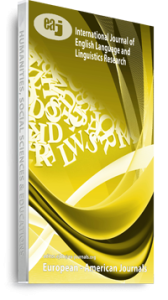It has been assumed that L2 learners’ productive knowledge of word derivatives is not predicted by their receptive knowledge, that is, learners with high levels of receptive knowledge may not be better than learners with low level of receptive knowledge in the production of word derivatives (e.g. Schmitt & Zimmerman, 2002; Collins & Nation, 2015). However, the current study does not conform to this notion, and provides new insights about EFL learners’ receptive and productive knowledge of word derivative forms. The participants of the present study were 36 postgraduate students at ten different Saudi universities majoring in different schemes of English. They were requested to take an English-Arabic translation task for 16 target words, and to fill in four blanks for each target word with a suitable word derivative class (i.e. a noun, verb, adjective, or adverb). Each blank appeared in a contextualized sentence, where the participants were required to provide a suitable derivative for each blank. Each target word had four sentences with blanks that required one of the four major word classes mentioned above. These 16 words came from Schmitt and Zimmerman’s (2002) study. The results showed that there is a significant correlation between the participants’ receptive and productive knowledge. Furthermore, the results indicated that adjectives and nouns were the most provided derivatives on the Schmitt and Zimmerman’s derivative forms test, followed by verbs and adverbs. Finally, some pedagogical implications were provided to help L2 learners increase their receptive as well as productive knowledge aspects of word derivations.
Keywords: breadth and depth knowledge, derivatives, productive knowledge, receptive knowledge, vocabulary size

